Sound: 









Value: 









(Read about our ratings)
Measurements can be found by clicking this link.
 You gotta admit that Audeze sticks to its guns. To the best of my memory, it’s the only major headphone manufacturer that uses planar-magnetic drivers exclusively. That wouldn’t be so impressive if the company only made headphones, but it makes planar-magnetic earphones, too. I gushed over the sound of the iSine 10 earphones, but to me they’re really kind of a shrunken version of Audeze’s open-back headphones. The new Euclid earphones ($1299 USD) are more dazzling, at least in concept—they’re closed-back earphones with an 18mm (roughly 11/16″) planar-magnetic driver. Yet they don’t look any larger—or any different, really—from typical high-end earphones. So these are something radically new for Audeze.
You gotta admit that Audeze sticks to its guns. To the best of my memory, it’s the only major headphone manufacturer that uses planar-magnetic drivers exclusively. That wouldn’t be so impressive if the company only made headphones, but it makes planar-magnetic earphones, too. I gushed over the sound of the iSine 10 earphones, but to me they’re really kind of a shrunken version of Audeze’s open-back headphones. The new Euclid earphones ($1299 USD) are more dazzling, at least in concept—they’re closed-back earphones with an 18mm (roughly 11/16″) planar-magnetic driver. Yet they don’t look any larger—or any different, really—from typical high-end earphones. So these are something radically new for Audeze.
The biggest potential advantage to this design over typical multi-driver high-end earphones is that by using just one driver per earpiece, Audeze avoids the engineering and acoustical complexity of earphones such as the Meze Rai Pentas. Audeze also claims that, like most other planar-magnetic drivers, the ones in the Euclid earphones have very low distortion, and an ultra-high maximum SPL of 120dB (although there’s little need to go past 100dB SPL). The potential downside of single-driver, high-end earphones is that the manufacturer has limited tuning options—with no crossover in the circuit, everything has to be done through physical adjustments to the driver and the acoustical chambers in front of and behind it.
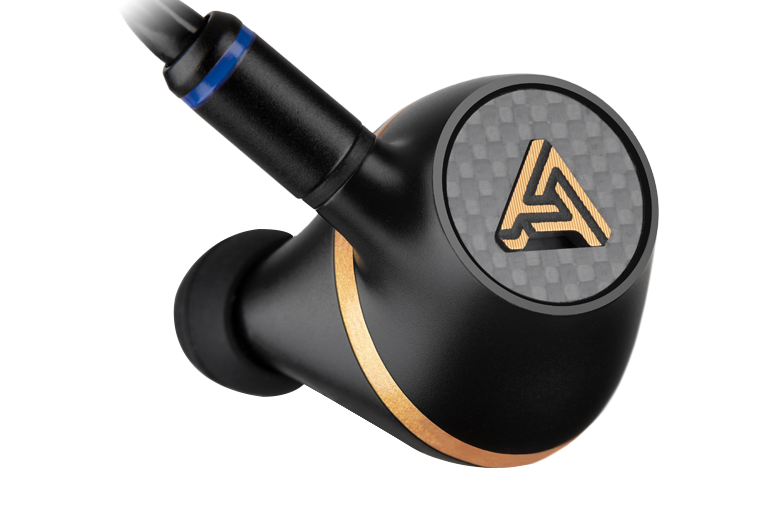
The Euclids use an MMCX cable connector on each earphone. For now, the Euclids come with a standard, unbalanced cable using over-ear routing, but Audeze says it will offer a balanced cable and a Bluetooth cable this spring.
Impedance is low, rated at just 12 ohms, but sensitivity is relatively high, at 105dB for 1mW of power. Given the outward normality of the design, and the high sensitivity, it seems the Euclids are intended for more than just hardcore enthusiasts—they’re also for well-heeled people who just want a good set of earphones they can plug into their Android phone, their tablet, or their computer.
In the box
The package includes the earphones, a Pelican waterproof traveling case, a lightweight mesh carrying pouch, and a 45″ (1.15m) braided cable with MMCX connectors on the earphone ends and a 3.5mm (1/8″) unbalanced stereo plug on the other. Audeze includes a generous selection of tips: three sizes of SpinFit silicone tips, three sizes of Audeze silicone tips, and three sizes of Comply foam tips. Considering the rather longish soundtube the Euclids use, I expect just about anybody will be able to get a good seal with these.
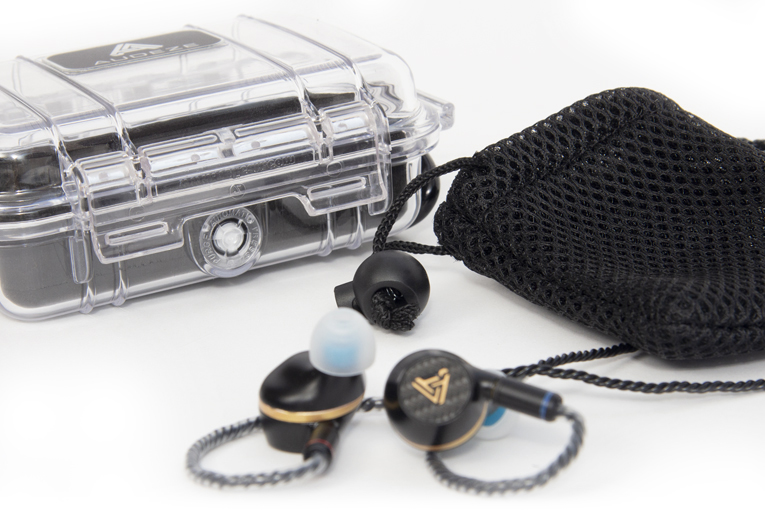
Use
I have very little to say about the ergonomics and fit of the Euclids, because they fit me beautifully and were comfortable to wear for two or three hours at a clip. After that, my ear canals wanted a break. The Euclids aren’t quite as filling as some other models with over-the-ear cable routing, so most of their weight is supported by the friction of the eartips rather than by the earlobes.
I got plenty of volume plugging them straight into my Samsung Galaxy S10 smartphone, although I did most of my listening using an AudioQuest DragonFly Cobalt DAC-headphone amp.
Sound
As always, I started my testing process by giving the Euclids ten hours of break-in. And then, as I so often do, I took them out on a few dog walks. I was happy to find that they didn’t work their way loose as many earphones do—the snug fit of the largest SpinFit tips, combined with the over-ear cable routing, kept them secure. I could tell right away from these casual listens that the Euclids’ sound wasn’t anomalous—i.e., there was nothing weird about it—and that they were at least pretty good.
The more I listened, the more impressed I became. At the beginning of Odette’s “Trial by Fire” (Herald, 16-bit/44.1kHz FLAC, EMI Australia / Qobuz), there’s a jar cap or something that spins around; it’s heard in both channels and it sounds like it’s right up against your nose, so I guess it was miked very close with stereo microphones. It sounded real enough through the Euclids that I thought for a second that the earphones had fallen out and my dog had knocked something over. As I got more into the tune, I was happy with what I heard. Odette’s voice was reproduced cleanly, naturally, and intimately; an ambient piano sound floated behind my head; bass seemed properly balanced with the rest of the mix; and the backing vocals were rendered with lush detail.
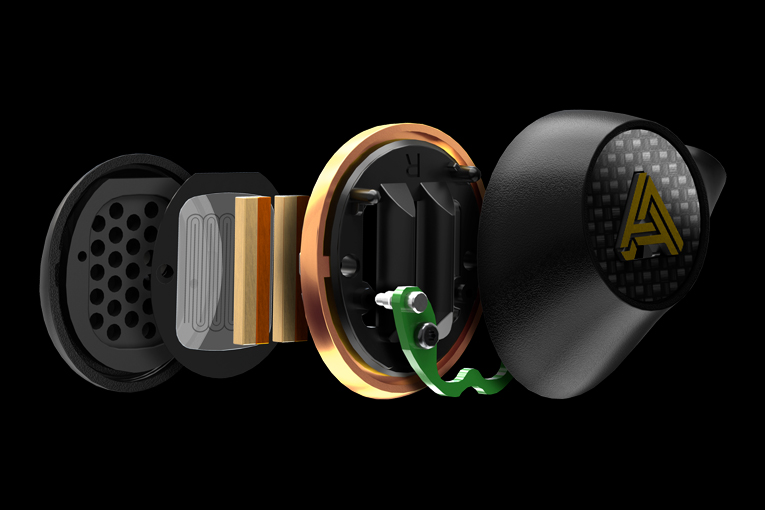
I liked the Euclids just as much on the ultra-hard-swinging Mixology (16/44.1 FLAC, Doodlin’ Records / Qobuz) by organist Chester Thompson (no, not the Chester Thompson who played drums with Weather Report and Genesis). On the opener, the 1966 George Benson tune “Clockwise,” I loved the way the Euclids kept the quartet of organ, tenor sax, guitar, and drums in what seemed a perfect balance—just enough bass from the organ pedals and just enough treble from the snare drum and cymbals to keep it all swinging. Everything sounded clear, uncolored, and—here’s a word I don’t use often when describing audiophile earphones—robust.
The Euclids were just as kind to male singers. Austrian singer-guitarist Hans Theessink’s rich vocals on the Rolling Stones’ “Sympathy for the Devil” (Jedermann Remixed—The Soundtrack, 16/44.1 FLAC, Blue Groove / Qobuz) sounded just like Hans Theessink, whose voice I’ve heard in a zillion high-end audio demos because it’s on the famous Burmester demo CD. The Euclids gave me that relatively dry, in-the-room-with-you vocal sound that’s typical of Theessink’s recordings, like he’s on a stool about six feet away. It also captured the much greater ambience of the acoustic and electric guitars, kick drum, and harmonica clearly and without any notable colorations I could spot.
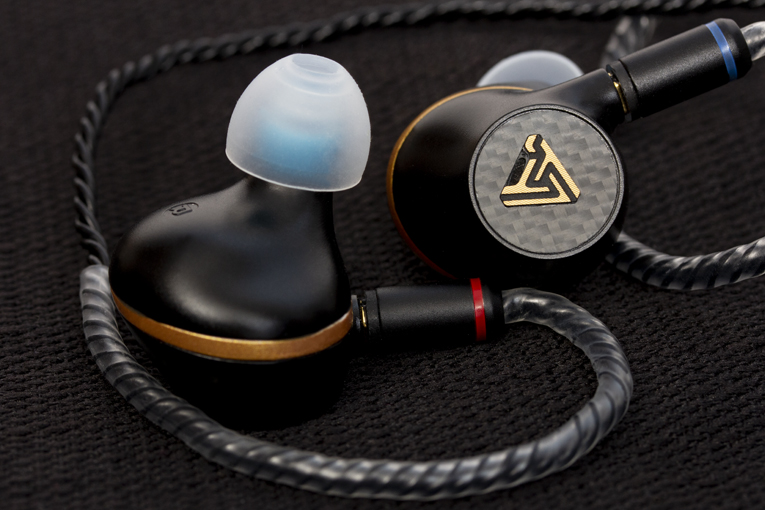
After a couple of weeks of using the Euclids to explore lots of unfamiliar and semi-familiar music—in other words, following my daily music listening habits—and finding nothing to complain about, I figured I’d better put on a familiar test track just to check, so I fired up the version of James Taylor’s “Shower the People” (from the Live at the Beacon Theatre DVD, ripped to 256kbps MP3 from the 16/44.1 WAV original stereo track, Sony). I’ve heard this recording through many hundreds of headphones and earphones, and countless stereo speakers, wireless speakers, soundbars, and home-theater systems, ranging from $5 to more than $500,000, so it’s not often I hear some new subtlety in it. But I have to say, the Euclids let me distinguish the vocals (two female singers, one male singer, and Taylor) backing singer Arnold McCuller’s solo at the end of the tune better than I’ve ever been able to before.
I did notice, though, that the upper treble, above about 5kHz, sounded a little on the mellow side. This didn’t bother me a bit, especially considering that the Euclids didn’t seem lacking in detail in any way, but I know some audiophiles prefer to have the highs kicked up a bit so they can hear the treble details more easily.
Comparison
I compared the Euclids mostly to the Meze Rai Penta earphones ($1099), a five-driver design. I also compared them to the Audeze iSine10s ($399), which, while open-back and much less expensive, are among the few planar-magnetic earphones available.
I was pleasantly surprised to hear that the Euclids and the Rai Pentas actually sounded fairly close when I played Tracy Chapman’s “Fast Car” (Tracy Chapman, 16/44.1 FLAC, Epic/Qobuz). Both had a nice balance of bass to treble, although the Rai Pentas were a little more trebly, and will probably be more appealing to audiophiles who like a trebly balance. Also, the Rai Pentas seemed a little recessed in the mids relative to the Euclids—the volume of Chapman’s voice seemed slightly reduced in the mix, and the top end of the voice had a bit more zip.
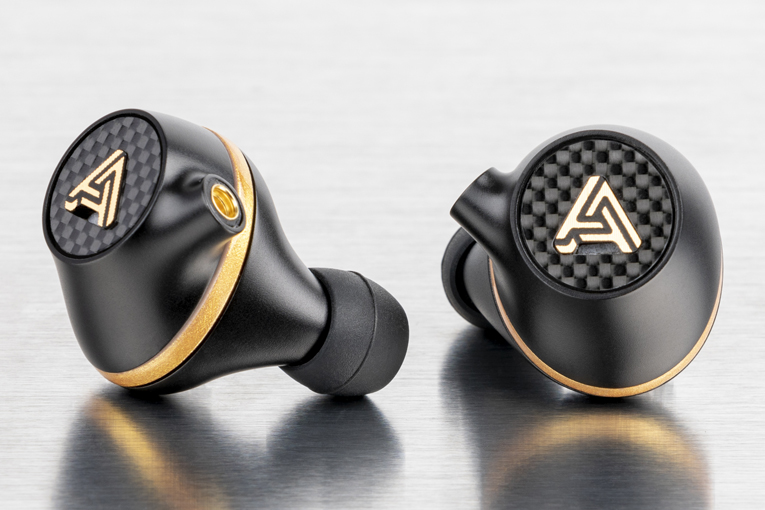
The iSine10s sounded a lot different from either of the closed-back models. I enjoyed that natural ease, sense of space, and lack of bass resonance that open-back models—yes, even the tiny iSine10s—have, but the Euclids’ response sounded much more natural. The iSine10s sounded softer overall, with some diminishment of energy in the mid-midrange, with extra boom in the fundamental tones of Chapman’s voice and some extra zip in the high-frequency elements of her voice.
Occasionally, I felt the Euclids sounded a little light in the deep bass, so I compared them with the dynamic-driver JVC HA-FW01 earphones ($349). Yep, the HA-FW01s definitely played deeper, with a lot more body in the deep bass notes, but as much as I like them, they couldn’t match the midrange and treble evenness and clarity of the Euclids.
Conclusion
The Euclids are easily among the best earphones I’ve tested. Other than noting that some audiophiles might want a more trebly response (which, in my opinion, isn’t natural or accurate), I can’t think of a single reservation I’d have about recommending them to anyone who’s game to lay down some big bucks for really, really great portable sound.
. . . Brent Butterworth
Associated Equipment
- Smartphone: Samsung Galaxy S10
- DAC-headphone amp: AudioQuest DragonFly Cobalt
Audeze Euclid Earphones
Price: $1299 USD.
Warranty: Three years.
Audeze
3412 S. Susan St.
Santa Ana, CA 92704
Phone: (714) 581-8010
E-mail:
Website: www.audeze.com





